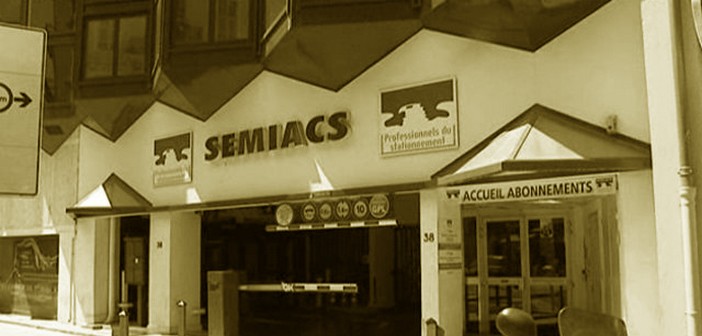SEMIACS, a mixed economy company, dependent on the city and in charge of parking, has been making headlines for several years. The socialist opposition group, chaired by Patrick Allemand, denounces a lack of transparency and points out the political responsibilities of Christian Estrosi and the President of the company, and first deputy, Philippe Pradal.
The socialist elected officials mention the reports of the Regional Chamber of Accounts concerning SEMIACS and its two subsidiaries (SUDE and SOFIPARK), in which the RRC highlights dysfunctions and significant irregularities that have led to various indictments.
Patrick Allemand wants clarity and suggests a desire by the Mayor of Nice to avoid the debate: “These three RRC reports on SEMIACS should have been discussed in the Municipal Council since September 2015. This is, indeed, a legal obligation. However, Christian Estrosi never wanted to organize these debates even though, following our written request on September 25, 2015, he committed to it in a letter dated October 9, 2015.”
Hence this unusual initiative to convene an extraordinary “municipal” conference, open to the public, during which they will undoubtedly also criticize Philippe Pradal’s responsibilities.
There is no doubt that the majority municipal councilors will refrain from intervening, and it is highly unlikely that this initiative will be favored by the elected members of other opposition groups.
Following the damning report of the Regional Chamber of Accounts, which highlighted management methods marred with formal irregularities and more, the announcement of the suspension and discontinuation of the intelligent parking system has, once again, reignited the controversy.
An “intelligent” project on paper but which, in its implementation, failed: final result, 9.1 million euros lost (“for Semiacs, which is a legal entity and not by the city,” specified the company’s president Philippe Pradal, who is also involved as Nice’s municipal finance deputy).*
But this case is far from over if we analyze the company’s management beyond the “personal affairs” which led its CEO Henri Alonzo to face a criminal conviction with a prison sentence (events unrelated to Semiacs but which, nonetheless, occurred within the company and were evidently favored or at least permitted by the context).
One finds management far from good administration standards (opaque management of contracts with third parties, career and salary management characterized by nepotism and favoritism, ambiguous relationships with unions…) which has found in the RRC a severe censor.
Certain actions are under investigation by the judiciary, obliging us to remain silent out of respect for the confidentiality of the investigation.
In this chaotic situation, if the company has stayed the course, it necessarily requires an upgrade (if not reset) involving a critical review of all contracts and other administrative actions to verify their proper constitution and management.
This will provide defensive or offensive elements in the various litigations that already exist or are to come.
For better activity oversight, the Board of Directors requested on April 18 from the Commercial Court and obtained that the company be placed under the safeguard procedure, with the appointment of a judicial representative who will have the power and responsibility to validate all administrative acts and forward them to the Commercial Court in the case of civil grievances and to the Public Prosecutor in the case of potential criminal evidence.
This mandate will last for a minimum of 6 months, with a possible renewal for an additional 6+6 months. At the end of this period, it will be known if past responsibilities (and of what nature) are attributable to some and what follow-up actions are to be taken.
At the center of the unspoken issues is the position of the former president of Semiacs (2008-September 2013), Benoît Kandel, who was also the first deputy mayor of Nice at the time.
Even if it has not been said, at least explicitly (but as taught in recitation courses, the language of signs, expressions, and body is sometimes more telling than that of words!), the intention to blame him entirely is totally evident.
The concerned party has always refused any personal responsibility and, in response, says he leaves it to the judicial authority to establish the facts and especially the responsibilities.
The requests thus remain unanswered.
Then, with the request comes curiosity: has no one (Semiacs administrators, municipal administrative management, local political world including the opposition…) seen or heard anything for over 5 years about everything that was happening?
The Semiacs saga continues and certainly many other episodes await us. This case is a real quagmire and we can expect more surprises.
As Americans, pragmatic people, wisely say, when you throw s… in the fan, it’s better to be behind it than in front!
In the meantime, it would be better if the company were disinfected rather than just washed with water and soap.


